From rugged cliffs and sprawling beaches to hidden coves and charming villages, the South West Coast Path offers more than just stunning views—it’s also a food lover’s paradise. Whether you’re fuelled by an ocean-fresh seafood feast, a hearty farmer’s breakfast, or simple trail snacks, the path’s culinary treasures are as rewarding as the trail itself.
This guide will explore the local eats, beverages, and tips to make sure your walking adventure is as delicious as it is scenic.
The South West Coast Path Experience
Spanning 630 miles and weaving through Somerset, Devon, Cornwall, and Dorset, the South West Coast Path is the UK’s longest National Trail. It attracts walkers from across the globe for its incredible landscapes and rich history, but what makes this trail truly special is its devotion to local tastes. Alongside countryside and coastal views, you’ll find fresh-from-the-sea dishes, farm-to-table restaurants, and producers who give the region its flavour.
Whether you're tackling the trail in stages or taking on the full 630 miles, there’s no shortage of delicious stops to fuel your adventure.
Taste Your Way Along the Coast
Each region along the South West Coast Path boasts its own unique culinary identity. From freshly baked Cornish Pasties to decadent cream teas, here are the highlights, stage by stage.
Somerset
The first couple of days on the South West Coast Path are walking through the county of Somerset. While you won’t be spending a great deal of time here, there are some legendary local treats to keep your eye out for.
- Cider: Somerset is the cider capital. Cider comes in all shapes and sizes, from your cloudy scrumpy with indeterminate strength and usually mind-melting properties to refined, gentrified ciders, bottled to look like champagne rather than being sold in flagons. Make time to visit a local producer like Sheppy’s for a real West Country experience.
- Cheese: As far as cheese goes, you should be looking out for some Cave Matured Cheddar from Cheddar Gorge or Barbers 1833 Vintage Reserve Cheddar. Both smooth, creamy and delicious, with layers of flavour.
Cornwall
Cornwall is a food lover's paradise, known for its fresh produce and iconic local dishes.

- Cornish pasty: A golden pastry filled with beef, potatoes, root veggies, and onions—perfect comfort food for a coastal stroll.
- Seafood specialties: Enjoy fresh delights like crab, mackerel, and pilchards straight from Cornwall's local waters.
- Cornish cider or pale ale: Try a glass of Cornish cider or a refreshing pale ale from one of the region's artisanal breweries. Cornwall delivers with award-winning breweries like Skinner’s and St Austell.
- Cream Tea: Cornwall’s clotted cream is unmatched, transforming scones into luxurious treats alongside strawberry jam (Cornish style, jam first!).
- Cornish cheese: We definitely recommend trying some Cornish Yarg. This cheese, wrapped in nettles, is a deliciously creamy cheese with a good crumbly centre.
Whether you prefer savoury or sweet, traditional or modern, Cornwall's food and drink scene offers something to inspire and delight!
Devon
You'll pass along the North and South coasts of Devon on the South West Coast Path and while here, you'll definitely want to sample some of the wonderful local specialities.

- Devonshire Cream Tea: Scones topped with clotted cream first, then jam (unlike the Cornish tradition).
- Fresh seafood: Highlights include Brixham crab and Exmouth mussels, sourced straight from Devon's coastal waters.
- Artisan cheeses: Notable varieties include Ticklemore and Sharpham, reflecting the county's rich dairy heritage.
- Devonshire gin: Plymouth Gin is a staple of Devon life and has been made here since 1793.
- Sparkling wine: Enjoy a glass of white from one of Devon’s boutique vineyards, like Sharpham Wine, beautifully paired with local cheese. Carmel Valley sparkling wine is also well worth a mention. Delightful, light fizz and bursting with flavour. Queen Elizabeth was, in fact, a fan - it's definitely worth getting your hands on a bottle or two.
Devon's food and drink scene focuses on simple, high-quality ingredients that embody the charm and abundance of the Southwest.
Dorset
The final stretch along the SWCP is through the incredible scenery of Dorset, but does the gastronomy match the scenery? Well, the answer is yes.
- Cider: Dorset produces some of the finest craft ciders in the country. With its lush orchards and traditional methods, the region boasts a variety of crisp, flavourful ciders perfect for a sunny afternoon.
- Blue Vinny Cheese: A Dorset speciality, this creamy, tangy blue cheese is a must-try. It’s made using traditional techniques that have been passed down through generations, adding a taste of history to every bite.
- Seafood: With its stunning coastline, Dorset is famous for its fresh seafood. Delicacies such as Weymouth Bay prawns, Portland crab, and lobster are a highlight of the local dining scene.
- Beers and Ales: Dorset is home to a number of independent breweries crafting full-bodied ales and refreshing lagers. Be sure to sample a pint of the region’s finest, like the renowned Badger ales.
- Honey and Preserves: The county is celebrated for its artisan honey and fruit preserves, often made using local produce. These sweet spreads capture the essence of Dorset’s countryside.
- Jurassic Coast Gin: Reflecting the dramatic coastline, this gin blends locally foraged botanicals like samphire for a truly distinctive and refreshing drink. It's also worth stopping by the distillery at Dorset’s Conker Spirit for a sip of their handcrafted dry gin.
- Scones and Cream: Dorset’s take on this classic cream tea treat is unbeatable. Whether you go jam-first or cream-first, there's no wrong way to enjoy a scone here!
- Portland lamb: Unique to Dorset is the Portland lamb. Rescued from the endangered species list, Portland lamb is a rare and delicious delicacy. The sheep take longer to mature and need to be hung for longer, which produces silky smooth meat that melts in the mouth.
- Apple cake & Dorset Knobs: Apple cake is another Dorset staple - it's recommended to be eaten with a hearty dollop of clotted cream. While we're on sweet things, it's a good idea to get your hands on some Dorset Knobs. These are actually little, sweetened bread balls which are a great source of walking energy.

Celebrating Local Food Producers
One of the joys of the South West Coast Path is stopping to meet the people behind the flavours. From farmshops to fisheries, these producers are the heart and soul of the region’s culinary culture.
Take Tregothnan Estate in Cornwall, which offers tours of the UK’s first tea-growing estate. Or visit Lyme Regises’ seafood market to chat with fishermen about their catch of the day. These connections make the food on your plate all the more memorable.
Smart Snacking on the Trail
Even with all the culinary indulgence waiting at each stop, smart snacking is key to a great walking experience. Here are some tips for packing snacks without overloading your bag.
What to Pack
- Energy-rich snacks like nuts, dried fruit, or trail mix.
- Protein-packed goodies like jerky or hard cheese for sustenance.
- Hydration heroes like electrolyte powders to mix into your water bottle.
Healthy Eating Tips
- Many accommodations along the trail offer packed lunches—take advantage of them, especially in remote areas.
- Stick to local, fresh produce whenever you can—nothing beats seasonal fruit as a mid-trail pick-me-up.
- Stay hydrated! Make sure your water bottles are filled before you set out on the trail. We recommend taking a water filtration bottle like Water to Go, so if you do run out mid-walk, you can fill from a stream worry-free.
For more advice, check out our hiking snacks and trail nutrition blog for detailed suggestions.
Where to eat along the South West Coast Path
Finding good food is part of the joy of walking the South West coast Path. With Macs Adventure, all breakfasts are provided by your accommodation, but for the rest of your meals, we’ve broken down the best cafes, pubs, and restaurants by key stops along the route. No matter which stage of the South West Coast Path you choose to walk, you're in for a treat!
Stage 1: Minehead to Westward Ho!
- Minehead: Start your adventure in Somerset with the freshest seafood. Grab a meal at The Old Ship Aground, a historic harborside pub that excels in locally caught fish dishes like seared sea bass and battered cod. For lighter bites at lunchtime, coffee and cake, head to Cafe Cream.
- Porlock Weir: With a reputation as one of the best restaurants in Exmoor, Porlock Weir Hotel serves exceptional dishes crafted from seasonal, locally inspired ingredients. For a more indulgent experience, Locanda on the Weir presents a unique zero-waste dining concept with a daily changing set menu. Due to their commitment to sustainability, advanced reservations are required. For a cosier option, The Cafe at the Gallery offers a delightful selection of homemade bakes, sharing platters, and light bites, all enjoyed surrounded by charming artworks by local artists.
- Lynmouth: On the banks of the West Lyn River, which winds into the Bristol Channel, perches the Rising Sun. This restaurant serves tastes from the coast and countryside in a relaxed atmosphere. Fancy a fiesta for your palette? The Oak Room combines traditional and modern tapas dishes designed as a sharing experience alongside superb Spanish wines.
- Combe Martin: Family-run Pack O Cards' is the go-to for a hearty meal after a day on the trails. From burgers and nachos to fish dishes and meat-free options, the menu offers something for all tastebuds. For views of Combe Martin Bay while you dine, head to The Focsle. Run by a father-son duo, a relaxed and modern vibe will welcome you in to tuck into satisfying comfort food.
- Woolacombe: If you're in the mood for seafood, the Beach House is a charming, family-owned restaurant dedicated to serving fresh, locally sourced seafood paired with exceptional service. You can't get fresher than fresh-off-the-boat catches, and that's what you can expect from Woolacombe Bay Hotel, alongside a wonderful wine list. For something more casual, The Jube serves up burgers, tapas and salads that are anything but boring. If you're here on a Sunday, Captain Jack's is a must-visit for a drink paired with swashbuckling live music.
- Braunton: Head to Heartbreak Hotel Coffee for fresh bakes and exceptional coffee. Everything is made in-house, from donuts to jam, so you know it’s fresh! Owned by Ash and Harriet, Bambu celebrates local produce, featuring seafood, meat, veggies, wine, and spirits from nearby suppliers. Their menu is a true regional showcase.
- Instow: For a delicious evening meal, check out the Strandfield Grill at The Commodore Hotel, where their sample menu promises a fantastic dining experience. The Instow Arms is another excellent spot, offering stunning views alongside hearty dishes. For something a bit different, The Boathouse is perfect for fresh, locally sourced meals in a relaxed setting. And seafood lovers shouldn’t miss The Glorious Oyster, known for serving up incredible seafood dishes with a unique flair. No matter your preference, Instow has something to satisfy every craving!
- Westward Ho!: For a fun, laid-back atmosphere, head to M’Rock’n’Bowl for delicious food and entertainment. The Drift Restaurant offers a cosy setting with fantastic dishes, perfect for a relaxed meal. The Pier House is another must-visit, boasting stunning seaside views and a menu full of fresh, local favourites. For something a bit more refined, Morans Restaurant serves up incredible cuisine with a warm, inviting ambiance. And don’t miss Tea on the Green for a classic cream tea or a light bite in a charming setting.
Discover our South West Coast Path: Stage 1| Minehead to Westward Ho! trip >
Stage 2: Westward Ho! to Padstow

- Westward Ho!: See above for dining recommendations in Westward Ho!
- Clovelly: Looking for a cosy spot to grab a snack or a drink? The Bay Tree Café is just the place to unwind. Craving something more filling? Check out The New Inn for hearty meals served in a charming setting. And if fresh, locally sourced food with amazing views sounds like your kind of thing, you can’t go wrong with the Red Lion!
- Hartland Quay: The Pop In convenience store is perfect for picking up snacks for your next day's walk. For a delicious meal, try Shamrock Fish and Chips for classic comfort food, or enjoy a hearty dish at The Kings Arms. Coffee lovers can stop by Coffee on the Square for a cosy café experience. For a more traditional pub atmosphere, check out The Hart Inn or The Anchor Inn, both offering fantastic menus. Lastly, don’t miss the Wreckers Retreat Bar in Hartland Quay Hotel, where you can enjoy a meal with stunning coastal views.
- Bude: Temple Cornwall not only serves a modern and creative menu with locally sourced ingredients but also invites you to visit their bar and roof terrace, Temple Up Top, where you can enjoy a drink while taking in stunning views. The Bank at Bude is a must-visit for its vibrant tapas and relaxed atmosphere, for hearty pub meals and a cosy setting, head to the Brendon Arms, and if you're after Mediterranean-inspired cuisine, The Olive Tree is the perfect spot.
- Crackington Haven: The Haven Beach Shop & Cafe - serving sandwiches with seaside fillings like Cornish crab, and smoked salmon with cream cheese. For something more warming, try their pulled pork roll or the soup of the day. For modern Cornish cuisine, head to Coombe Barton Inn where dishes like warm St. Ives Smoked Mackerel Fillets and whole roast seabass feature on the menu.
- Tintagel: Lunchtime calls for a cosy meal at Charlie's Café or enjoy a hearty dining experience at the King Arthur's Arms, known for its welcoming atmosphere. The Cornishman Inn offers traditional pub fare with a local touch, while The Malthouse delivers delicious food in a charming setting. For a more refined experience, Camelot Castle's restaurant and bar provide a fantastic menu, including their delightful afternoon tea overlooking the stunning Cornish coastline.
- Port Isaac: If you’re looking for great dining options, Cornish Cove Tea Room is perfect for freshly made cakes, creamy ice cream, or a light lunch. For a full meal, check out the Chapel Café, Port Isaac Hotel, or The Mote for delicious local flavours. For cocktails, don’t miss the Bloody Bones Cocktail Bar at The Golden Lion. Seafood lovers will enjoy Fresh From the Sea, while pizza enthusiasts can head to The Angry Anchovy. For a fine dining experience, visit Outlaw’s renowned restaurants for a memorable culinary treat.
- Padstow: Padstow is a true haven for seafood lovers, with a range of exceptional dining options to explore. Rick Stein’s iconic restaurants, including The Seafood Restaurant, are must-visits for dishes like Cornish crab and scallops, delivering the ultimate taste of the sea. For a more casual yet equally delightful experience, check out Burgers & Fish or Prawn on the Lawn, both offering fresh, flavourful fare. Paul Ainsworth’s restaurants bring a creative flair to the table, while The Jetty at Harbour Hotel offers waterfront dining with a modern twist. Don’t miss the charming Old Custom House or the Shipwrights for a cosy and authentic Padstow vibe.
Discover our South West Coast Path: Stage 2 | Westward Ho! to Padstow trip >
Stage 3: Padstow to St Ives
- Padstow: See above for dining recommendations in Padstow.
- Newquay: A hotspot for food joints, Newquay serves up plenty to choose from. Head to Ginger and Joe for a cosy and flavourful experience, enjoy delicious, handcrafted pizzas with a view at Stable Pizza at Fistral, and for fresh seafood right by the beach, the Fish House Fistral is the place to be. Have an appetite for a relaxed pub vibe? Head to Fort Inn in Newquay or visit Secret Garden Newquay for a charming and unique dining atmosphere.
- Perranporth: For a taste of authentic Indian cuisine, Jaipur Indian Cuisine offers a flavourful experience with its diverse menu. Seiners, located by the coast, provides a delightful selection of food and drinks with stunning views to match. For a more laid-back vibe, The Watering Hole is a fantastic choice, known as the UK’s only bar on the beach, serving up great food and drinks in a unique setting.
- Portreath: Portreath Bakery is a must-visit for its freshly baked goods, offering a range of delicious pastries and treats that are perfect for a quick bite or a satisfying snack. Meanwhile, The Portreath Arms provides a cosy and welcoming atmosphere, serving hearty meals and local favourites that are sure to impress.
- Hayle: For great dining options, The Old Forge Lelant offers a cosy and welcoming atmosphere, while The Quay House in Hayle provides a fantastic menu with stunning waterfront views. For a local favourite, Gilbert's Hayle serves up delicious meals bursting with flavour. Don’t miss Philps Pasties, known for their traditional Cornish pasties, a must-try in the area. Finally, Salt Hayle combines fresh, locally sourced ingredients with a modern dining experience that’s perfect for any occasion.
- St Ives: Indulge in some of the finest dining experiences in St Ives with these top recommendations. Enjoy Michelin-starred meals with stunning views at Porthminster Beach Café, or savour fresh seafood and creative cocktails at the Rum & Crab Shack. For a classic pub experience with hearty meals, visit the historic Sloop Inn. Seafood lovers will adore the dishes at CINTRA Seafood Bar, while Scoff Troff Café offers a cosy spot for delicious comfort food. Relax with beachfront dining at Porthmeor Beach Café or take in the scenic views while enjoying a meal at The Balcony Bar & Kitchen.
Discover our South West Coast Path: Stage 3 | Padstow to St Ives trip >
Stage 4: St Ives to Penzance

- St Ives: See above for dining recommendations in St Ives.
- Zennor: Be sure to check out The Tinners Arms, a historic pub offering hearty meals and a welcoming atmosphere. For those seeking a more refined dining experience, Gurnard's Head is a must-visit, featuring a seasonal menu crafted from fresh, local ingredients. There isn't a convenience store nearby, so we recommend stocking up on trail snacks in St Ives the day before.
- Pendeen: For a great dining experience in the small village of Pendeen, visit The North Inn, the only eatery in the area known for its delicious food and welcoming atmosphere.
- Sennen Cove: Old Success offers a charming spot with hearty meals, while Sennen Cove Café provides stunning coastal views paired with delicious light bites.
- Penzance: For restaurants, check out 45 Queen Street, known for its fantastic meals, and The Turks Head, a charming spot with a rich history. The Fountain Tavern and The Alverne Restaurant also offer incredible dining experiences, perfect for a special evening out. For a relaxed atmosphere, consider The Navy Inn or The Benbow, both of which provide delicious meals in a cosy setting. If you're in the mood for some café vibes, head over to The Terrace or The Dolphin Tavern, where you can enjoy a casual meal and welcoming ambiance.
Discover our South West Coast Path: Stage 4 | St Ives to Penzance trip >
Stage 5: Penzance to Falmouth
- Penzance: See above for dining recommendations in Penzance.
- Porthleven: For a relaxing coffee or light lunch, Origin Coffee is the perfect spot for expertly brewed coffee and snacks, while Ann's Pasties offers a delicious taste of Cornwall with its famous handmade pasties. For hearty meals and pub vibes, head to The Ship Inn or The Atlantic Inn, both offering a warm atmosphere and classic dishes. If you're after a cosy pub experience with a view, The Harbour Inn is another fantastic choice. For those seeking a full restaurant experience, try Cantina for a vibrant menu, Amélies for fresh seafood and Mediterranean-inspired dishes, or The Corner Deli for casual, flavourful meals.
- Coverack: Paris Cove Rack offers a delightful culinary experience with a focus on fresh, locally sourced ingredients. For a cosy and welcoming atmosphere, The Lifeboat House is a fantastic choice, known for its hearty meals and excellent service. Lastly, The Bay Hotel provides a stunning dining setting, perfect for enjoying delicious food while taking in beautiful views.
- Mawman Smith: If you're exploring the area, be sure to check out some great dining options like Awna Coffeehouse for a cosy spot to grab a coffee or a bite, and the Red Lion, offering delicious, hearty meals. Don’t forget to stop by the Village Shop to stock up on trail snacks before heading out on your next adventure!
- Falmouth: For a relaxed seaside atmosphere, check out Beach House or Gylly Beach Café. Muddy Beach and the Windjammer Café Bar offer cosy spots with great menus, while Café Strand is perfect for a casual bite. If you're looking for something unique, Ukrainian Soul serves authentic flavours you may have never tried before, and Dough & Öwr is great for artisan treats. For a more refined experience, visit The Chain Locker, Harbour Dining, or the St. Michael’s Resort. Kona Bar and The Shed round out the list with vibrant atmospheres and excellent food—perfect for a lively evening or a laid-back drink.
Discover our South West Coast Path: Stage 5 | Penzance to Falmouth trip >
Stage 6: Falmouth to Plymouth

- Falmouth: See above for dining recommendations in Falmouth.
- Portloe: The Lugger Hotel in Portloe boasts a stunning waterfront location and serves up fresh, locally sourced dishes that highlight the best of Cornish cuisine. Just a short stroll away, The Ship Inn is nestled down a narrow street in the heart of this charming village, offering a cosy atmosphere and hearty meals perfect for a relaxed evening.
- Mevagissey: The Wheelhouse Restaurant offers a warm vibe and is known for its fresh, locally sourced seafood. The Sharksfin delights guests with stunning coastal views and a menu brimming with flavourful dishes. For a sweet treat, She Sells Cornwall is the perfect spot to indulge in artisan ice creams and snacks, as well as browsing their gift emporium which showcases a whole range of trinkets.
- Charlestown: Springtide Charlestown offers a delightful menu of chowders, chicken dishes and bar bites made with fresh, locally sourced ingredients, served in a cosy atmosphere. The Boathouse Charlestown combines stunning waterfront views with delicious, creative dishes from the land and sea. For a traditional pub experience with hearty meals and a warm ambiance, the Rashleigh Arms is a fantastic choice.
- Fowey: The King of Fowey rustles up imaginative menus for guests to enjoy in a beautiful setting. For a more refined experience, The Old Quay House offers exceptional dining with stunning views. If you're in the mood for something more casual, Sam’s on the Beach serves US-style bistro dishes in a unique setting—a converted old lifeboat station.
- Looe: Juju’s is a favourite among locals, serving up small plates and tapas that transport you straight to Spain with every bite. For a taste of locally sourced seafood and hearty dishes, Smugglers Cott, The Sardine Factory, and The Golden Guinea offer menus that showcase the best of the area’s culinary delights.
- Portwrinkle: While visiting the petite village of Portwrinkle, dining options may be limited, but nearby Crafthole offers some wonderful choices. The Liscawn Inn provides a cosy setting with hearty meals, perfect for a relaxing evening. For a more traditional pub experience, the Finnygook Inn is a great spot to enjoy local flavours and a warm welcome. If you're looking for something unique, the clubhouse at Whitsand Bay Golf Club combines delicious food with stunning coastal views.
- Plymouth: For a more traditional dining experience, check out Bistrot Pierre or the Waterfront Plymouth, both offering delicious meals with stunning views. If you're in the mood for a vibrant bar atmosphere, head over to The Terrace or Waypoint Bistro, perfect for drinks and casual bites. For a snug café vibe, Early Bird Café and Fig and Thyme are excellent choices, serving delicious coffee and fresh treats in welcoming settings.
Stage 7: Plymouth to Brixham

- Plymouth: See above for dining recommendations in Plymouth.
- Noss Mayo: The Ship Inn offers a warm and welcoming atmosphere on the waterfront. Their menu features seasonal British produce - we're talking steamed seafood and fresh veggie dishes. For another fantastic choice, visit the family-run The Swan Inn, known for its charm and excellent food.
- Salcombe: For an iconic Cornish pasty, The Pasty Shack is a must-visit. If you’re in the mood for great coffee, the Salcombe Coffee Company has you covered. For something more refined, head to Dick & Wills for waterside dining and succulent seafood and meats cooked on the grill. The Wardroom delivers delicious meals with stunning views, Boatswains at The KA is perfect for a bite, and The Jetty at the Salcombe Harbour serves up exquisite dishes crafted with care and creativity surrounded by decor that can only be described as coastal calm.
- Dartmouth: The Seahorse Restaurant in Dartmouth is renowned for its fresh seafood, including perfectly grilled fish and shellfish, served in an elegant, comfy setting with a view of the River Dart. Amalfi Kitchen brings the flavours of Italy to life with handmade pasta, wood-fired pizzas, and classic Italian dishes in a charming, rustic atmosphere. The Angel in Dartmouth combines fine dining with a picturesque waterfront location, offering a menu that highlights seasonal, locally sourced ingredients. Embankment Bistro provides a laid-back yet stylish vibe, featuring modern European cuisine and riverside views. Lastly, George & Dragon serves hearty British classics and elevated pub fare in a welcoming, traditional decor.
- Brixham: Albero Brixham serves up authentic Italian cuisine in a cosy, modern atmosphere, while The Old Market House provides fresh seafood and British classics with stunning harbour views. For a fine dining experience, Brixham Bistro offers locally sourced dishes in an intimate setting. The Prince William is perfect for hearty pub-style meals, also overlooking the harbour. Breakwater Bistro specialises in seafood and light bites, located right on the water with picturesque views. The Berry Head Hotel combines a traditional charm with classic dishes, surrounded by wonderful coastal scenery. Finally, the Guardhouse Café is a great spot for coffee and cake or lunch, featuring homemade cakes and wholesome meals in a historic building atop scenic Berry Head.
Discover our South West Coast Path: Stage 7 | Plymouth to Brixham trip >
Stage 8: Brixham to Exmouth
We don't currently offer a standard package for this part of the SWCP. Get in touch with our team if you want to complete the full route, and we can talk you through your options. If you are completing the full route, here are some recommendations for when you reach this leg.
- Brixham: See above for dining recommendations in Brixham.
- Torquay: Start with Hole in the Wall, the town's oldest pub, known for its cosy, historic charm and lively atmosphere featuring live music five days a week. For a touch of Austrian flair, Old Vienna serves up authentic dishes like schnitzels and strudels in an intimate, rustic setting. Meat59 is a must-visit for burger lovers, offering a menu packed with gourmet burgers and unique sides in a modern, industrial-style space. Enjoy fresh seafood and stunning harborside views at Below Decks, where you’ll find everything from fish and chips to seafood platters. For a more upscale experience, Pier Point combines beachfront views with a diverse menu featuring British classics and international dishes in a sleek, contemporary setting.
- Shaldon: The Bucket and Spade offers a relaxed seaside vibe with a menu filled with hearty breakfasts, fresh seafood, and classic comfort dishes. The Ness, perched with stunning coastal views, features a mix of British pub classics and elevated dishes, perfect for a scenic meal. The Clipper Shaldon provides a cosy and welcoming atmosphere, serving everything from light bites to indulgent mains, with an emphasis on locally sourced ingredients. Lastly, the London Inn Shaldon, located in the heart of the village, combines charming traditional decor with a menu featuring pub staples like fish and chips, steaks, and seasonal specials.
- Exmouth: The Beach Pub Exmouth provides a relaxed seaside vibe with hearty pub classics, perfect for unwinding by the water. The Grove Exmouth combines a cosy atmosphere with a menu featuring locally sourced dishes, including fresh seafood. Ocean Exmouth features a modern, stylish decor with stunning sea views and a selection of international-inspired cuisine. Heydays Devon is a charming café offering homemade treats, brunch favourites, and a warm, inviting interior. Brasserie 16 at Devoncourt serves elegant dishes with a focus on European flavours, all within a sophisticated setting. Lastly, Eat Mexican delivers vibrant, authentic Mexican street food in a lively, colourful environment.
Stage 9: Exmouth to Lyme Regis

- Exmouth: See above for dining recommendations in Exmouth.
- Sidmouth: The Bedford Hotel's Sea View Lounge Bar provides stunning coastal views alongside classic British dishes and fresh seafood. For a café vibe, try My CASSI Café, where you’ll find homemade treats and light bites in a welcoming setting. The Fort Café is a favourite for hearty breakfasts and lunch fare. Blinis Café Bar combines a modern decor with a menu of fresh, locally sourced dishes, perfect for a casual meal and Duke’s offers a mix of pub classics and seasonal specials. For something more refined, The Marine serves exceptional seafood and Mediterranean-inspired dishes with gorgeous seaside views. Lastly, The Pea Green Boat charms visitors with its quaint decor and menu featuring locally sourced seafood and vegetarian options.
- Beer: Gina’s offers authentic Italian cuisine in a no-frills setting, focusing on hearty classics like fresh pasta, wood-fired pizzas, and rich tiramisu. For a more casual vibe, check out Steamers Beer, known for its craft beer selection paired with a tasty menu that spotlights the region's fine produce. Lastly, The Smugglers Kitchen stands out with its rustic coastal decor and a menu full of unique dishes. From seafood chowder and smoky Louisiana jambalaya to venison bourguignon and classic fish and chips, it's a must-stop for seafood lovers on a seaside adventure.
- Lyme Regis: For authentic Spanish tapas in a cosy, rustic setting head to Strawberry Tree. Enjoy fresh seafood and locally sourced dishes at The Lyme Bay, which offers stunning seaside views. Rock Point Inn combines a warm pub atmosphere with hearty meals like fish and chips and Sunday roasts. For delicious Thai cuisine, head to Largigi, known for its relaxed vibe and beachside location. Pizza lovers will adore the wood-fired creations at Poco Pizza, served in a casual, intimate space. The Royal Standard offers a traditional pub experience with a menu of British classics right on the waterfront. For a touch of elegance, visit Tom's Lyme Regis, featuring a menu of refined seasonal dishes and an inviting, modern interior. We Swim provides a unique café experience by the beach with a menu that accommodates, veggies, vegan gluten-free and carnivores alike. Finally, The Pilot Boat offers diverse menu options, from fresh seafood to indulgent desserts.
Discover our South West Coast Path: Stage 9 | Exmouth to Lyme Regis trip >
Stage 10: Lyme Regis to Poole

- Lyme Regis: See above for dining recommendations in Lyme Regis.
- Bridport: George West Bay offers fresh seafood with stunning coastal views, making it a perfect seaside escape. Rise Café Bar combines modern décor with a relaxed vibe, serving up hearty brunches and artisan coffee. At Watch House Café, you can enjoy wood-fired pizzas and local specialties while soaking in picturesque beachside scenery. The Ropemakers, a cosy pub with rustic charm, features classic British dishes and live music for a lively evening out. Finally, tuck into homemade cakes, seasonal lunches, and an extensive tea selection at Ivy House at Groves Nurseries in a quaint garden setting.
- Abbotsbury: Close your eyes and think of an English pub and you'll likely picture the Swan Inn. Understated yet charming, it serves all the classic pub grub which you can enjoy in the beer garden if the sun's out. Cherries Café is a charming spot known for its freshly baked cakes, hearty breakfasts, and light lunches, all served in a cosy, welcoming setting. Meanwhile, The Ilchester Arms offers a more traditional pub experience, featuring dishes like fresh seafood, classic roasts, and locally sourced produce, all enjoyed in a historic inn with rustic décor.
- Weymouth: The White Pepper serves Kerala cuisine, where aromatic, rich flavours transport you to southwest India. At Rona Bar & Grill, you’ll find tasty dishes from the Mediterranean and Turkey. From mezes to grilled octopus, Rona's offers a fusion of flavours in a welcoming, chilled setting. Little Dishes specialises in small plates and Mediterranean-inspired dishes, perfect for sharing in a relaxed, seaside location. Lastly, The Fat Badger combines great views with comfort food, serving everything from indulgent burgers to creative vegetarian options.
- Lulworth: The Boat Shed Café, located right by the water, offers a relaxed, coastal vibe and serves fresh seafood dishes, light bites, and refreshing drinks, perfectly matching its beachside setting. For a classic pub experience, the Lulworth Cove Inn charms visitors with its rustic decor and hearty menu, featuring traditional British favourites like fish and chips, pies, and Sunday roasts. Meanwhile, The Castle Inn, a cosy spot, serves locally sourced dishes, including steaks, burgers, and vegetarian options, all in a warm, historic setting.
- Kimmeridge: due to lack of accommodation in Kimmeridge, you'll likely be staying in Swanage.
- Swanage: Gee Whites, located on the waterfront, offers a seaside setting to enjoy a menu filled with a mix of fresh seafood, pizzas, burgers and light bites. Meanwhile, The Black Swan combines rustic charm with a cosy atmosphere, serving hearty pub classics such as burgers, fish and chips, and Sunday roasts, as well as ribs and pork belly off the barbeque.
- Poole: Mythos Restaurant offers authentic Greek cuisine, featuring dishes like souvlaki, moussaka, and fresh seafood, all served in a cosy, Mediterranean-inspired setting that transports you straight to Greece. For a more laid-back vibe, Rockwater provides a mix of modern British dishes with a seaside twist, including fresh oysters and hearty Sunday roasts, all set against stunning coastal views. Choose nibbles with a view on their roof terrace or a main accompanied by a cocktail in their bar and kitchen. Lastly, The Cliff at Canford Cliffs combines elegant decor with a menu of refined European dishes, from perfectly cooked steaks to indulgent desserts, making it an ideal spot to celebrate the end of your South West Coast Path adventure.
Discover our South West Coast Path: Stage 10 | Lyme Regis to Poole trip >
End Every Walk with a Delicious Memory
Whether you’re savouring seafood on a beach or sipping artisan cider by the fire, eating and drinking along the South West Coast Path transforms your walk into the adventure of a lifetime.
Hungry to experience it for yourself? Get in touch to start planning your self-guided hiking adventure with Macs Adventure. We’ll handle the details (luggage transfers and accommodation), so you can focus on the food, the views, and the memories.
Book your South West Coast Path trip today with Macs Adventure.





ETL/routeimagegallery/shutterstock-398735083-undercliffnationalreserve-rsz2-18102019163246387.jpg)
ETL/routeimagegallery/1500-devon-lighthouse-rsz2-18102019163243946.jpg)
ETL/routeimagegallery/1500-devon-goodies-rsz2-18102019163244541.jpg)
ETL/routeimagegallery/ss-1500-views-close-to-Exmouth-rsz2-18102019163248780.jpg)
ETL/routeimagegallery/ss-1500-ladram-bay-rsz2-18102019163247575.jpg)
ETL/routeimagegallery/1500-thatched-cottages-devon-rsz2-18102019163245135.jpg)
ETL/routeimagegallery/ss-1500-seafood-chowder-rsz2-18102019163248090.jpg)
ETL/routeimagegallery/2100-SS-footpath-to-durdle-door-rsz2-18102019163245682.jpg)
ETL/routeimagegallery/ss-1500-branscombe-hill-rsz2-18102019163246950.jpg)
ETL/routeimagegallery/21-DinneratPortreathArms-1500x1000-rsz2-08112019113735631.jpg)

FTP/routeimagegallery/Day3-Falmouth-Portloe34-rsz2-18102019164849752.JPG)
FTP/routeimagegallery/shutterstock-408721828-betweenpolperroandlooe-tallandBay-rsz2-18102019164854196.jpg)
FTP/routeimagegallery/ss-1500-charlestown-harour-entrance-rsz2-18102019164856307.jpg)
FTP/routeimagegallery/shutterstock-438838750-Looe-rsz2-18102019164857466.jpg)
FTP/routeimagegallery/ss-1500-fowey-rsz2-18102019164856935.jpg)
FTP/routeimagegallery/Day3-Falmouth-Portloe41-rsz2-18102019164851114.JPG)
FTP/routeimagegallery/Day3-Falmouth-Portloe43-rsz2-18102019164852301.JPG)
FTP/routeimagegallery/coverphoto-rsz2-18102019164854901.jpg)
FTP/routeimagegallery/shutterstock-459485770-stmawescastle-rsz2-18102019164855636.jpg)
FTP/routeimagegallery/Day3-Falmouth-Portloe43-rsz2-07112019133532383.JPG)
LTP/routeimagegallery/WalktoDurdlesDoor-1-rsz2-08032023093224045.jpg)
LTP/routeimagegallery/DurdlesDoor-View-1-rsz2-08032023093230727.jpg)
LTP2/tourimagegallery/254518755-2704208249884749-3014878101891057801-n-1-rsz2-08032023100308480.jpg)
LTP/routeimagegallery/SWCPLymeRegistoPoole2-rsz2-14052024091828937.jpg)
LTP/routeimagegallery/21-DinneratPortreathArms-1500x1000-rsz2-08112019150244347.jpg)
LTP/routeimagegallery/OldHarrysRock-1-rsz2-08032023093218100.jpg)
LTP/routeimagegallery/SWCPLymeRegistoPoole9-rsz2-14052024091806529.jpg)
LTP/routeimagegallery/SWCPLymeRegistoPooleCorfeCastle-rsz2-14052024091812518.jpg)
LTP/routeimagegallery/SWCPLymeRegistoPooleLulworthCove1-rsz2-14052024091819946.jpg)
LTP/routeimagegallery/WalktoPoole-1-rsz2-08032023093224908.jpg)
LTP/routeimagegallery/SWCPLymeRegistoPoole-rsz2-14052024091823270.jpg)
MTW/routeimagegallery/PrimaryTourImage-HarbouratLynmouth-rsz2-01092023133546513.jpg)
MTW/routeimagegallery/PrimaryTourImage-PutsboroughSandsfromWoolacombe-rsz2-01092023133551659.jpg)
MTW/routeimagegallery/original9-rsz2-21102019130112356.jpg)
MTW/routeimagegallery/PrimaryTourImage-NorthDevoncoastalpath.NrWoolacombe-rsz2-01092023133600602.jpg)
MTW/tourimagegallery/LyseLatraverse-Newquay-1500x1000-rsz2-29092020114834801.jpg)
MTW/tourimagegallery/PorlockWeirSWCP-rsz2-29092020114649716.jpg)
MTW/routeimagegallery/17-LunchatPortreath-CornishPasty-1500x1000-rsz2-08112019115333080.jpg)
MTW/routeimagegallery/ss-1500--swcp-near-westward-ho-rsz2-21102019131020159.jpg)
MTW/routeimagegallery/PrimaryTourImage-FollowtheSWCP-rsz2-01092023133605247.jpg)
PTS/routeimagegallery/MarkNCIandAlethaSWCP-rsz2-25042024160448128.jpg)
PTS/routeimagegallery/PathdowntoTrellasCombe-rsz2-25042024160453701.jpg)
PTS/routeimagegallery/SWCPYelloarrow-rsz2-25042024160515274.jpg)
PTS/routeimagegallery/06-HarbourCove-1500x1000-rsz2-18102019112335629.jpg)
PTS/routeimagegallery/RickSteinproducts-rsz2-25042024160458607.jpg)
PTS/routeimagegallery/Padstowwalking-rsz2-25042024160452223.jpg)
PTS/routeimagegallery/StAgnes-rsz2-25042024160501794.jpg)
PTS/routeimagegallery/21-DinneratPortreathArms-1500x1000-rsz2-18102019112341792.jpg)
PTS/routeimagegallery/-StIvesselfie-rsz2-25042024160519538.jpg)
PTS/routeimagegallery/HawkerCovedistant-rsz2-25042024160446735.jpg)
PTS/routeimagegallery/StIvesBeers-rsz2-25042024160503780.jpg)
PTF/routeimagegallery/ss-1500-cadgewithcove-rsz2-18102019155733429.jpg)
PTF/routeimagegallery/shutterstock-426450934-rsz2-18102019155729470.jpg)
PTF/routeimagegallery/shutterstock-544861891-porthleven-rsz2-18102019155730719.jpg)
PTF/routeimagegallery/ss-1500-st-mawes-castle-rsz2-18102019155732897.jpg)
PTF/routeimagegallery/shutterstock-376678501-coverack-rsz2-18102019155730095.jpg)
PTF/routeimagegallery/original1-rsz2-18102019160152513.jpg)
PTF/routeimagegallery/shutterstock-TrebahBeach-rsz2-18102019155734179.jpg)
PTF/routeimagegallery/original-rsz2-18102019160215787.jpg)
PTF1/tourimagegallery/17-LunchatPortreath-CornishPasty-1500x1000-rsz2-08112019095815891.jpg)
PTF1/tourimagegallery/web.9-swcp-1500x1000-rsz2-08112019095823272.jpg)
PTB/routeimagegallery/david-rsz2-05062025125412741.jpg)
PTB/routeimagegallery/PrimaryTourImage-Salcombe-rsz2-01092023142344015.jpg)
PTB/routeimagegallery/LyseLatraverse-Newquay-1500x1000-rsz2-07112019163905487.jpg)
PTB/routeimagegallery/original3-rsz2-18102019161544562.jpg)
PTB/routeimagegallery/original2-rsz2-18102019161543294.jpg)
PTB/routeimagegallery/original1-rsz2-18102019161543920.jpg)
PTB/routeimagegallery/original-rsz2-18102019161548301.jpg)
PTB/routeimagegallery/original6-rsz2-18102019161546331.jpg)
PTB/routeimagegallery/original8-rsz2-18102019161547628.jpg)
PTB/routeimagegallery/original7-rsz2-18102019161546987.jpg)
STP/routeimagegallery/PrimaryTourImage-SWCP-ZennornachStJust-BlickaufCapeCornwall02-rsz2-22092023161328597.jpg)
STP/routeimagegallery/UmbracoBannerImageUmbraco-NearZennor-rsz2-22092023161722815.jpg)
STP/routeimagegallery/PrimaryTourImage-SWCP-StIves070-rsz2-22092023161802859.jpg)
STP/routeimagegallery/PrimaryTourImage-SWCP-StIvesnachZennor-TinnersArmsPubZennor81-rsz2-22092023161259376.jpg)
STP/routeimagegallery/VsourzUmbracoStandardImage-ZennortoBotallack3-rsz2-22092023161338519.jpg)
STP/routeimagegallery/PrimaryTourImage-SWCPbeiPorthcurno1-rsz2-22092023161251798.jpg)
STP/routeimagegallery/PrimaryTourImage-SWCP-UnterkunftStIves-PednOlva019-rsz2-22092023161314372.jpg)
STP/routeimagegallery/PrimaryTourImage-UnterkunftSt.IvesPednOlva5-rsz2-22092023161321017.jpg)
STP/routeimagegallery/UmbracoBannerImageUmbraco-DJWC2410-6789-rsz2-22092023155411415.jpg)
STP/routeimagegallery/landsendA1500x1000-rsz2-17102019165559145.jpg)
WHO/routeimagegallery/original2-rsz2-18102019152250985.jpg)
WHO/routeimagegallery/shutterstock-bude-rsz2-18102019152254660.jpg)
WHO/routeimagegallery/shutterstock-boscastle-rsz2-18102019152252925.jpg)
WHO/routeimagegallery/1500-PortIsaacCove-rsz2-18102019152251532.jpg)
WHO/routeimagegallery/1500-ss-large-portisaaccove-rsz2-18102019152250170.jpg)
WHO/routeimagegallery/shutterstock-hawkershut-rsz2-18102019152253628.jpg)
WHO/routeimagegallery/21-DinneratPortreathArms-1500x1000-rsz2-07112019155029024.jpg)
WHO/routeimagegallery/09-HeadingtowardsStepperPoint-1500x1000-rsz2-07112019155046367.jpg)
WHO/routeimagegallery/padstowtown1500x1000-rsz2-07112019155217054.jpg)
WHO/routeimagegallery/padstowbeachess1500x1000-rsz2-07112019155221376.jpg)
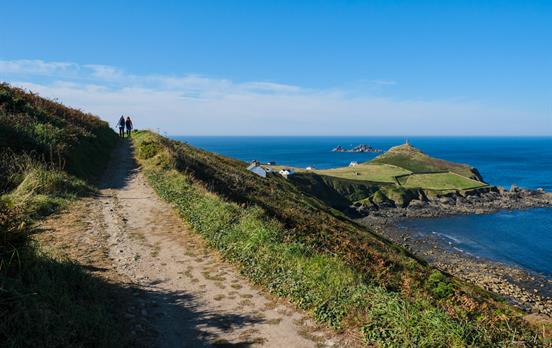
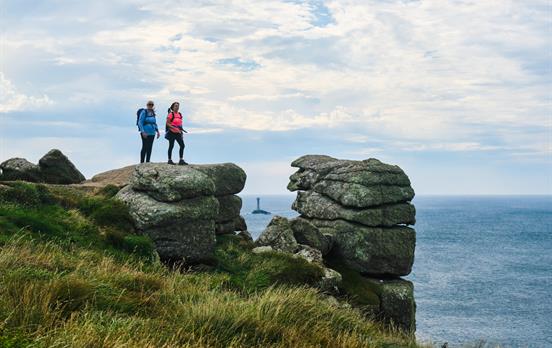
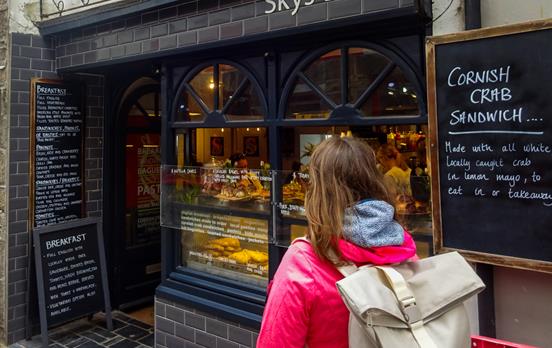

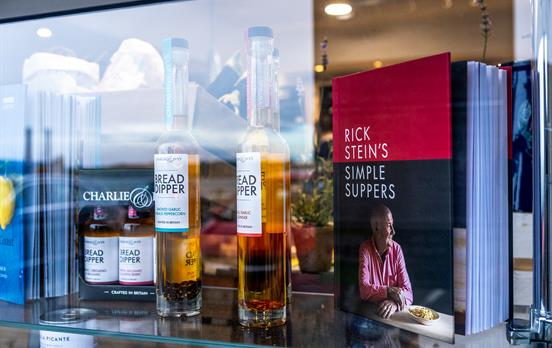
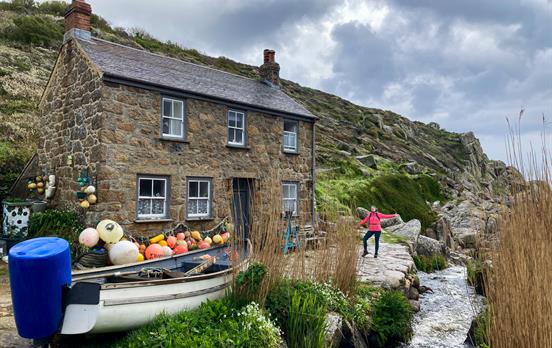
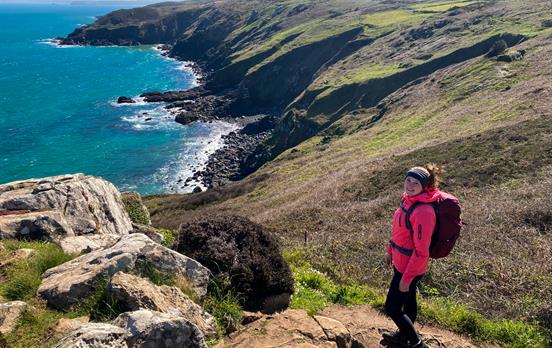
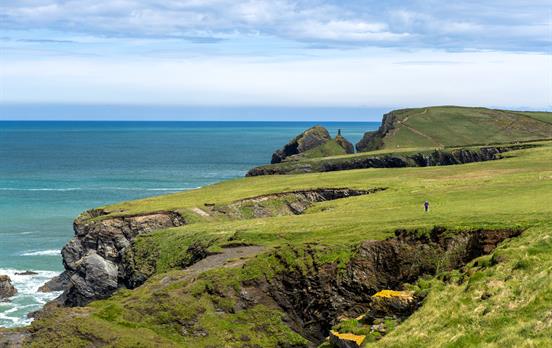
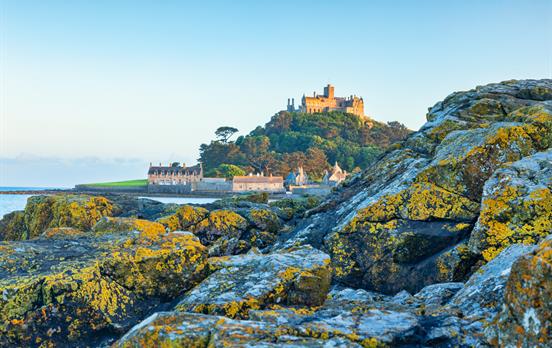
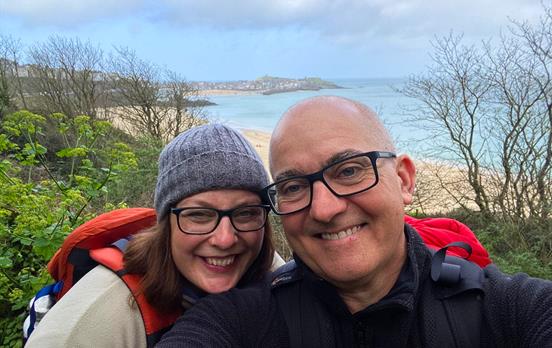
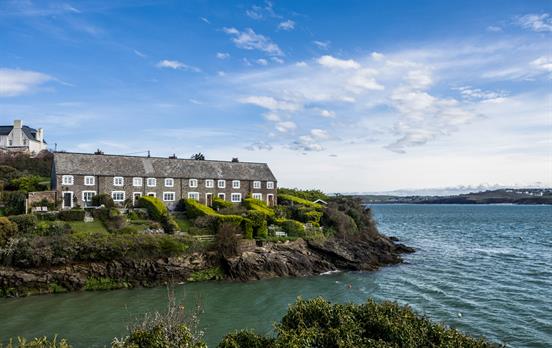
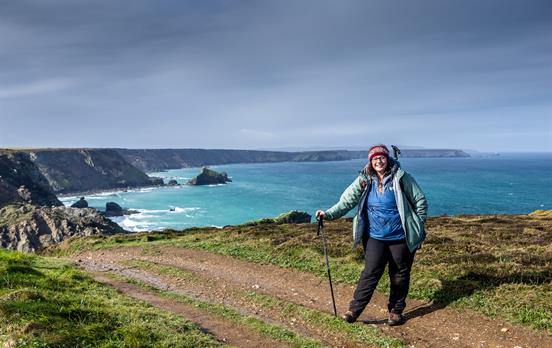
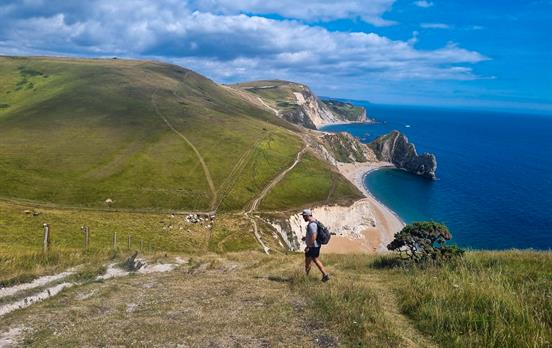
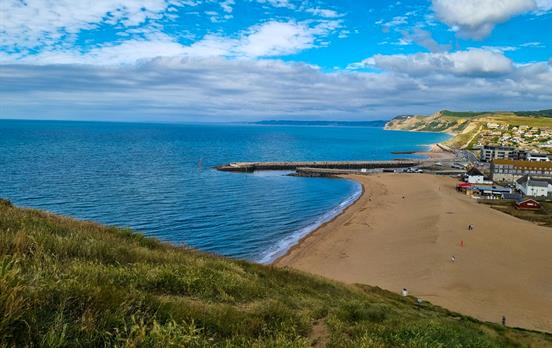
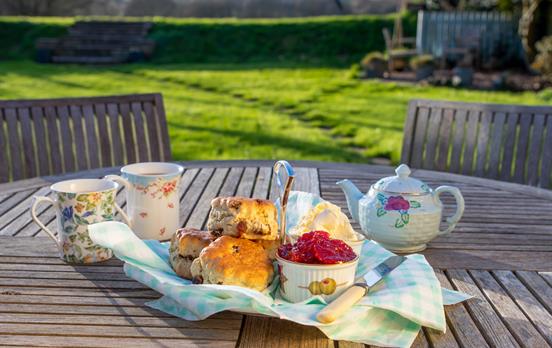
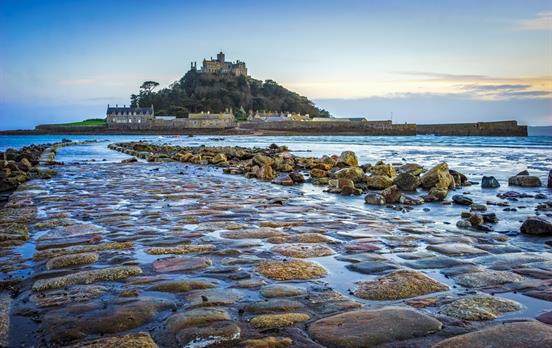
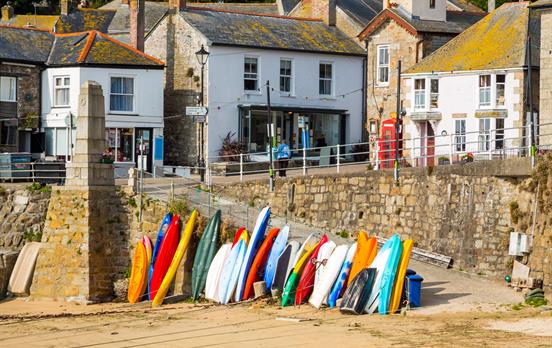
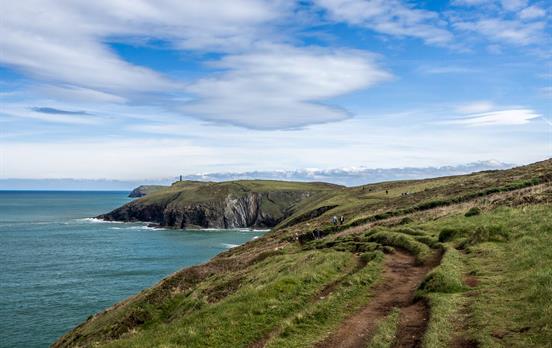
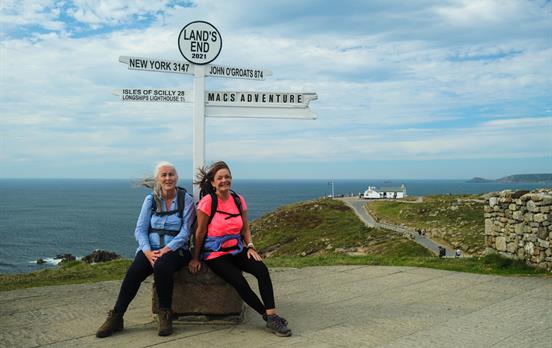
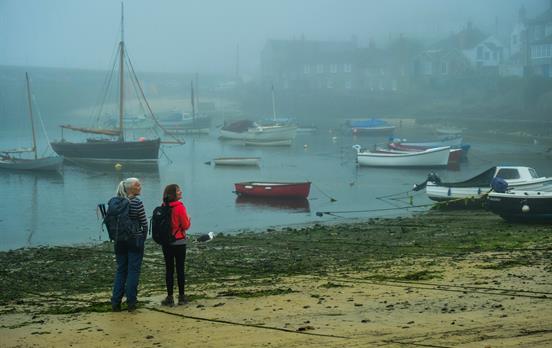
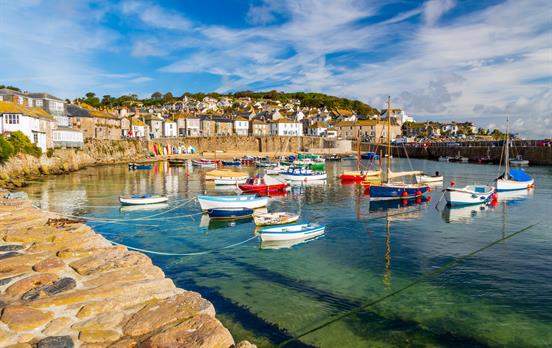






 Australia
Australia New Zealand
New Zealand South Africa
South Africa European Union
European Union